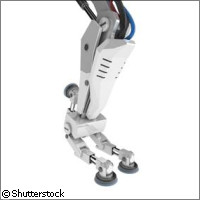EU doubles investment in robotics
The European Commission has announced that it will double its investment in European robotics research between 2007 and 2010. The announcement was made during AUTOMATICA 2008, one of the leading international trade fairs in robotics and automation, which took place in Munich, Germany. With €400 million in funding, the programme aims to encourage partnerships between academia and industry in the field of robotics, as well as stimulate a new innovative ideas and experiments. As part of the programme, technology transfer schemes between academia and industry will be set up, allowing for example European research labs to use industrial-strength robots for large-scale experimentation. The resulting scientific knowledge will then directly be fed back to participating companies. According to Viviane Reding, EU Commissioner for Information Society and Media, there is a huge untapped potential in the EU's robotics sector. 'There is a clear window of opportunity for automation industries in Europe - in particular robotics - not just to maintain leadership, but to grow further and to move higher up the value chain,' she said 'To achieve this, the industry has to intensify its efforts in several areas.' Since approximately one third of all industrial robots are produced in Europe, the continent has managed to maintain a strong position in industrial robots for automation. But that does not mean that Europe should rest on its laurels. To strengthen its position, the European Commission calls on the industry to intensify its efforts in producing critical components in Europe, such as gears, in order to face competition from Asia and avoid strategic dependencies on other regions of the world. According to statistics from the International Federation of Robotics (IFR), the world market for industrial robots currently stands at €4 billion and is forecasted to increase by 4.2% per year until 2010. The IFR also forecast that growth in this market will be expected to reach between 10% and 15 % per year between now and 2010, while the number of professional service robots will grow from 40,000 in 2006 to 75,000 in 2010. Service robots are used in many sectors, and their application can vary from distributing goods, cleaning vehicles, to applications in the agricultural and medical sectors. Robotics and automating certain sectors will also have certain beneficial spill-over effects, for example, they can play a key role in ensuring a sustainable chain of production by minimising wasteful use of resources. They can also contribute to help Europe's aging society by compensating for a declining labour force.



